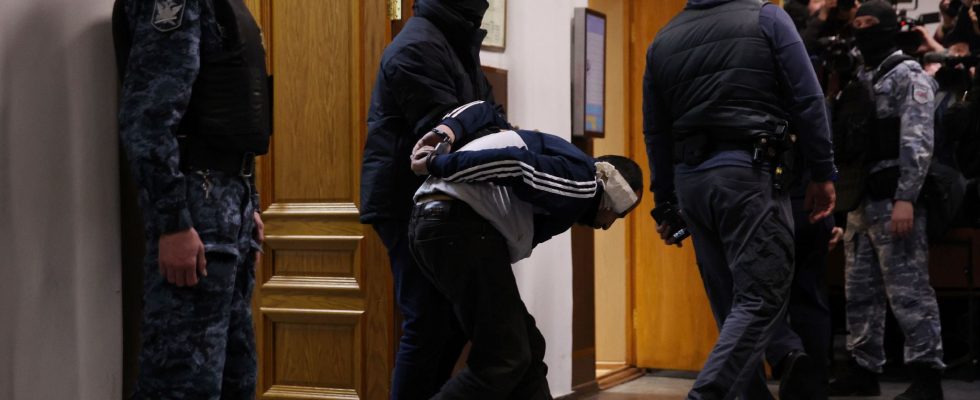Here, there is no question of evoking the figure of the “lone wolf”. This Friday, March 22, shortly before 7 p.m., a group of individuals in camouflage clothing entered Crocus City Hall, a concert hall in the Moscow suburbs. Gusts are heard, followed by a crowd movement, before further methodical shooting at people trying to escape. The toll is heavy: at least 139 dead, including three children. A few hours later, the Islamic State terrorist group in Khorasan claimed responsibility for the killing. By its method of operation and its scale, the attack in Moscow evokes the deadliest attacks on European soil.
More than 2,600 km away, France remembers the scenes at the Bataclan, and raises the Vigipirate plan to its highest level, “emergency attack”, lowered since January. The EIK group “had carried out several attempts on our own soil in recent months”, explained Emmanuel Macron during a trip to Guyana on Monday March 25. And Prime Minister Gabriel Attal added that two attack plans had been “foiled” since January. The head of government promised to deploy “exceptional means […] throughout the territory”, including “4,000 additional soldiers” who were placed “on alert”.
Painful observation for Europe. We are not talking here about a “resurgence of jihadist terrorism”, which had never left the continent in any case. That, rather, of the return of “remote-guided” attacks from abroad, far away, on a territory which aims to become a new caliphate. Founded in 2015 on the borders of Afghanistan and the Iranian province of Khorasan, EI-K is today one of the most active branches of Daesh. Unlike other emanations of the Islamic State, such as that developing in the Sahel, EI-K intends to extend its action well beyond a single region of the world. The organization had expressed this desire in 2021, with attacks in Pakistan, India, and even Tajikistan. It reached a further level with that carried out in Moscow, the scale and sophistication of which demonstrated its organizational capabilities.
The loss of influence of Daesh, sponsor of the attacks of November 13, had led to the suspicion of a replacement of “commando” terrorism by “atmospheric jihadism”: isolated attacks, without an order giver, coming from individuals influenced by jihadist ideology. The formula, coined in 2021 by Islamologist Gilles Kepel, gained visibility after the assassination of Dominique Bernard in Arras on October 13, 2023 and, two months later, the attack on the Bir-Hakeim bridge in Paris. The rise of EI-K reminds us that we will now have to deal with two forms of terrorism which, far from replacing one another, seem complementary.
